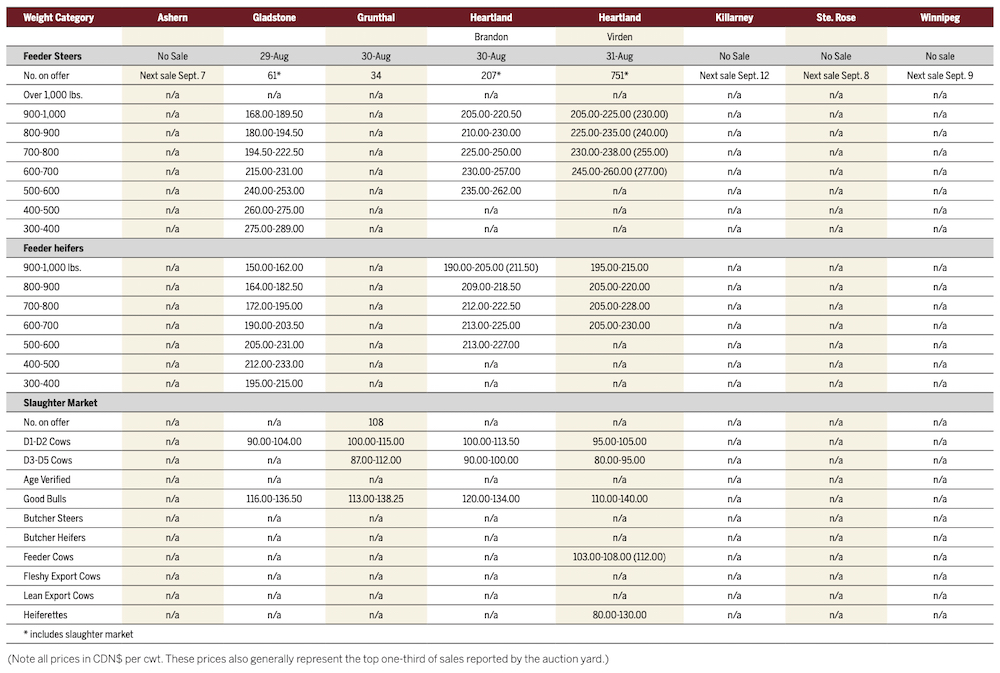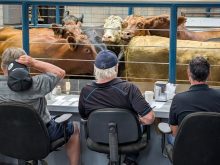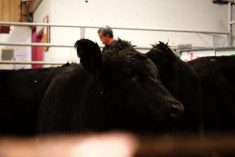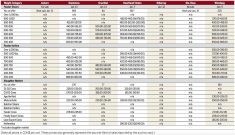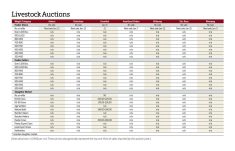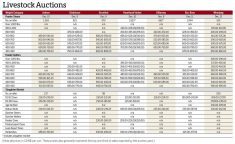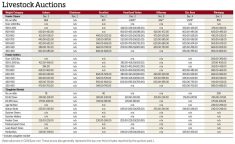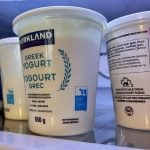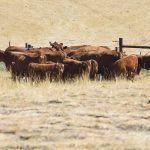More cattle went through the rings at Manitoba auction sites during the week ended Sept. 1.
In total, 1,161 cattle were sold at four auction sites: Gladstone, Grunthal and the Heartland Livestock Services (HLS) sites at Brandon and Virden. For Gladstone, its sale on Aug. 29 was its first after taking a summer break. There were 753 cattle sold during the previous week.
According to HLS Virden manager Brennin Jack, prices continue to show strength.
Read Also
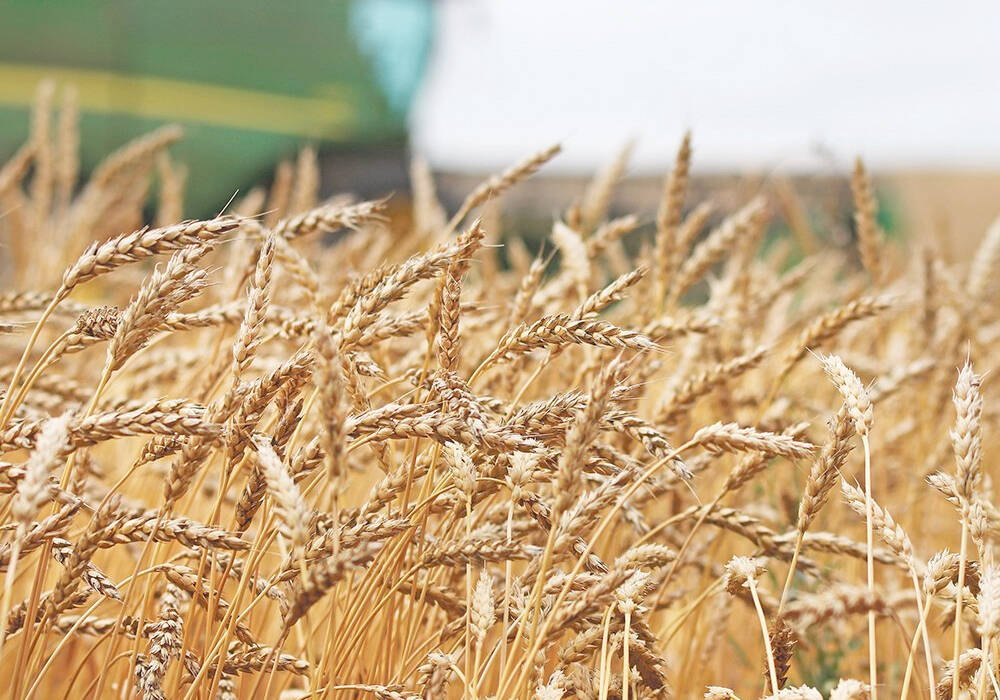
Wheat prices likely headed for sideways trade
U.S. brush with a severe winter storm put only brief upward pressure on wheat futures markets into last week of January.
“We had a big run of yearlings this week and (prices were) $3-$8 (per hundredweight) stronger than the week previous,” he said. “(There is) low supply for these yearlings and lots and lots of demand from the feedlot operators who want to buy them.”
Jack added that drier pasture conditions may cause producers to sell their calves weeks earlier than expected. He estimated the cost of gain for feeders is half of what it was last year.
“We’re seeing more realistic cost of gains on some of the cattle. It’s definitely going to add some money into the calves from the feedlots’ perspective. The futures market is also looking pretty good for the new (marketing) year,” he said.
On the Chicago Mercantile Exchange, the October live cattle contract closed at US$142.80/cwt. on Sept. 1 after days of choppy trade. The October feeder cattle contract closed at $184.35, three days after hitting a seven-week low of $180.55. Meanwhile, the Canadian dollar lost 1.35 U.S. cents over the past week to close at 75.95 U.S. cents.
The top-quality cattle are moving into Eastern Canada and most of the rest are going to Western Canada, according to Jack. He does not expect butcher cow prices to stay this high for much longer due to lower demand.
“I’ve felt the cows were definitely softer this week,” he said. “If (processing plants) can’t buy the cows, they’ll just process a few more loads of fat cattle. I think we’ve peaked and I can see the trend (go lower) in the next month or so.”
‘Not consulted’
Manitoba Beef Producers (MBP) is speaking out against a proposal by Keystone Agricultural Producers (KAP) to expand its collection of annual membership fees to more commodities, including cattle.
On Aug. 25, KAP sent a letter to Manitoba commodity groups, including MBP, saying that under the province’s Agricultural Producers’ Organization Funding Act, KAP can receive funds through a check-off system. Under this system, a levy is applied by designated purchasers who buy agricultural product directly from Manitoba producers.
Purchasers are required to withhold one per cent of the gross selling price of a product with an annual checkoff capped at $262.50 plus GST.
Manitoba producers can opt out of the checkoff, but designated purchasers are still required to apply it. Any producer who opts out receives a full refund from KAP on amounts deducted.
“Money collected from the KAP check-off goes to a variety of different initiatives, services and programs aimed at benefiting and advancing the interests of Manitoba producers,” KAP wrote on its website.
“KAP periodically reviews who has been designated as purchasers and includes any entities which ought to be included but were previously not. To that end, KAP anticipates an additional 161 agricultural companies to be applying the check-off in 2022.”
However, MBP said it already applies an in-house check-off system that funds provincial and national initiatives and services in the beef sector.
“MBP was not consulted about this and does not support this. MBP is continuing to investigate the potential implications of KAP’s decision for our members and the sector on whose behalf we so proudly work,” MBP wrote on its website.


